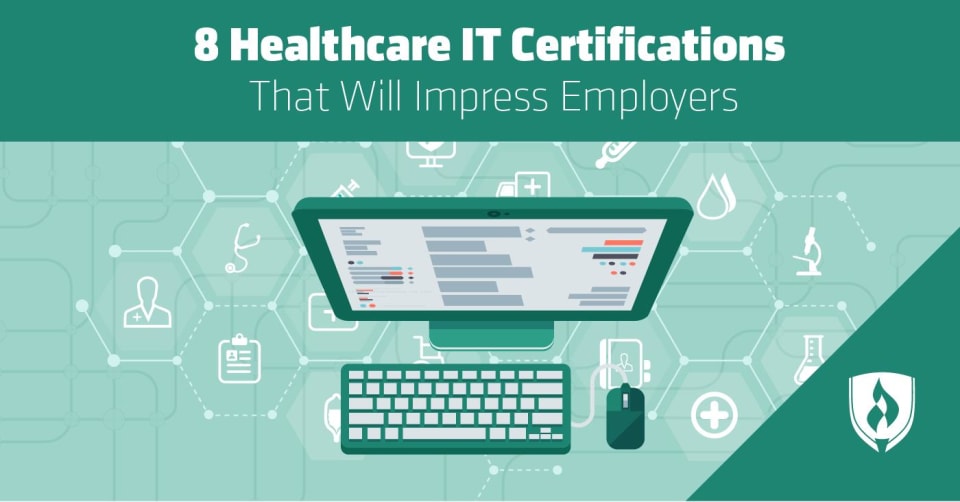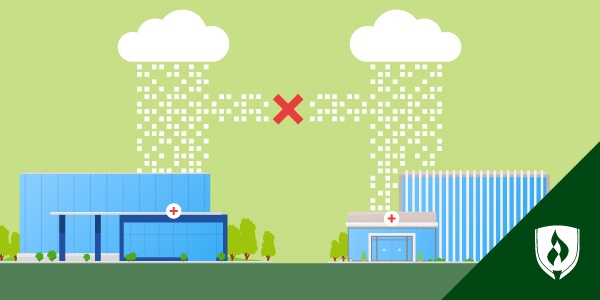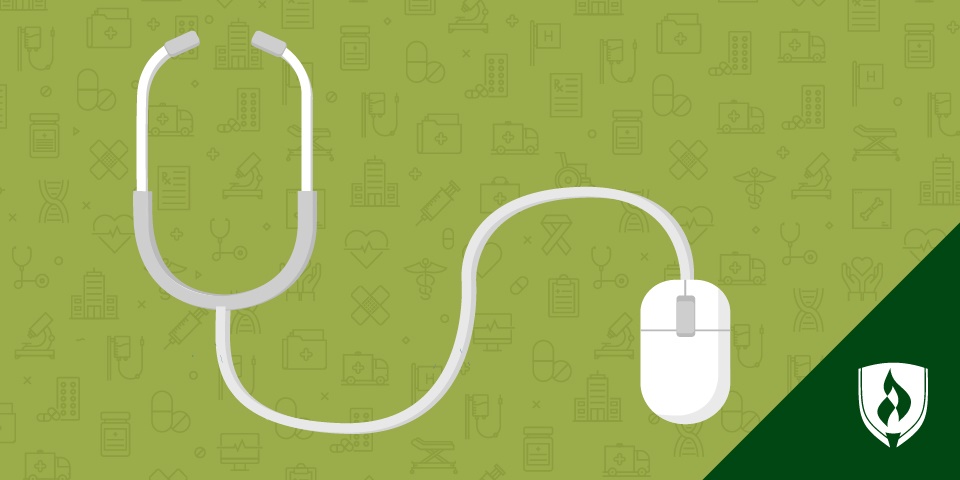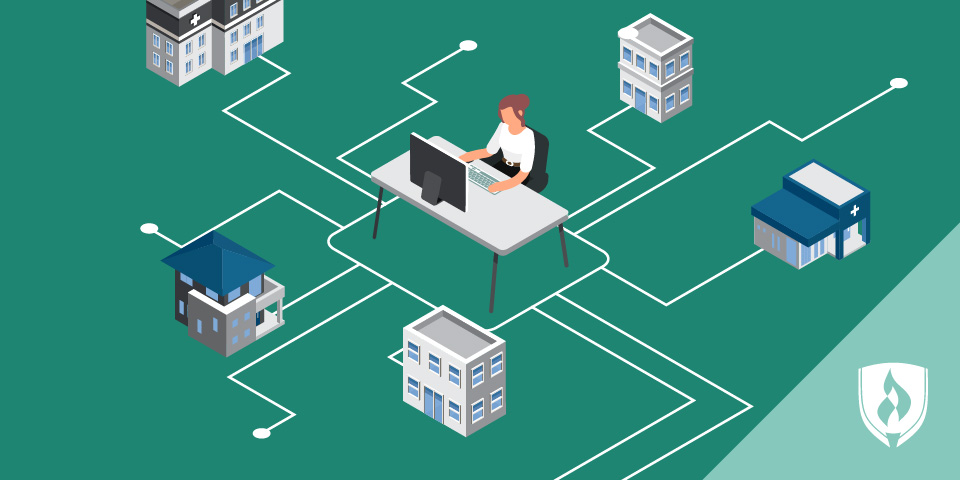
Whether you’re working toward a career in healthcare information technology (HIT) or you’re already well established, you’ve probably heard about the benefits of and demand for healthcare IT certifications.
You don’t want to pass up an opportunity to diversify your expertise and make yourself even more relevant to employers. But you’re probably wondering where to start. There are countless healthcare certifications out there today, and sorting through the alphabet soup of acronyms can be overwhelming.
That’s why we did the work for you. Keep reading to learn about the eight healthcare IT certifications in highest demand and how they could help increase your employability.
8 In-demand healthcare IT certifications to consider
We used real-time job analysis software to examine more than 92,000 HIT job postings.* The data revealed the top healthcare IT certifications employers are seeking. Here’s what we found:
1. Registered Health Information Technician (RHIT)
The RHIT credential is administered by the American Health Information Management Association (AHIMA). RHIT certification signifies technicians possess the ability to verify the quality of medical records and use technology to gather and analyze patient records, among other tasks. These individuals often specialize in coding patient records for the purpose of reimbursement and research.
This healthcare certification (along with experience) can be a great stepping stone for advancement into management positions, especially when paired with a Bachelor’s degree.
2. Certified Professional Coder (CPC®)
This health certification is administered by the American Academy of Professional Coders (AAPC). The CPC credential is for individuals who work to maintain accurate medical coding and documentation. CPCs possess knowledge of coding regulations and guidelines, understand the link between medical coding and payment policy changes and are experts in reviewing and assigning accurate medical codes.
To achieve this credential, the AAPC requires you to have at least two years of medical coding experience. They also recommend earning an Associate’s degree.
3. Registered Health Information Administrator (RHIA®)
The RHIA credential is also administered by AHIMA, which states this professional is “a critical link between care providers, payers and patients.” The RHIA performs many tasks, including managing patient health info and medical records, managing people and units and participating in administrative committees. These individuals are well-versed in medical, administrative, ethical and legal requirements related to healthcare delivery and patient privacy.
If you’re looking for an HIT position outside of a hospital environment, this may be an optimal option. RHIAs work in a variety of settings including insurance companies, software vendors, consulting services, government agencies and more.
4. Certified Outpatient Coder (COC®)
This healthcare certification was formerly known as the Certified Professional Coder – Hospital Outpatient (CPC-H) and is now growing in popularity. Ambulatory care is on the rise, which means so is demand for medical coders who are qualified to handle outpatient billing and coding.
According to the AAPC, this is one of the highest paying healthcare credentials for medical coding professionals. Earning this credential demonstrates your general medical coding proficiency, as well as some precise knowledge and expertise in the nuances of ambulatory care facilities.
5. Epic Certification
Epic has made a name for themselves as one of the most popular developers of software for electronic health records (EHR) systems. In order to become Epic certified, you’ll be trained at the company’s headquarters in Verona, Wis. You also must have a sponsoring employer and hands-on experience with at least one Epic project.
This healthcare IT certification is unique in that it is usually paid for by the hospital or facility with which you’re employed. It enables you to not only implement specific Epic software, but possibly even become an Epic consultant, traveling from hospital to hospital.
6. Project Management Certification (PMP®)
The PMP certification is administered by the Project Management Institute (PMI®) and is applicable to project managers in nearly every industry. This credential is extremely valuable in the HIT industry because project managers are needed to oversee the management of electronic health records and other IT initiatives.
PMP applicants must meet some prerequisites that include both education and experience. Click here for a list of requirements. If you don’t meet the PMP requirements, you may want to consider the certified associate of project management (CAPM®) credential instead.
7. Certified Professional in Electronic Health Records (CPEHR)
The CPEHR is awarded by Health IT Certification and is one of four certifications they offer within the health IT industry. This training is designed for those who have a background in either IT or healthcare, but limited experience in the other field.
This healthcare credential may be a good starting point if you’re interested in working in EHR because it does not have any prerequisites. However, there is a fee to enroll in an online or on-site training course and take the 100-question exam.
8. Certified Associate in Healthcare Information & Management Systems (CAHIMS)
The CAHIMS is administered by Healthcare Information and Management Systems Society (HIMSS), which states the credential “is designed for emerging professionals who may or may not have experience within the industry.”
In order to qualify, you must have a high school diploma and meet other requirements outlined in the CAHIMS candidate handbook. The handbook will also help you in preparing for, applying for and scheduling your exam.
Stand out with healthcare IT certifications
You’re now aware of the wide variety of healthcare IT certifications that employers are looking for. Earning one of these could help you advance your career in the world of health information technology.
Stay up to date with the latest health information trends.
*Burning-Glass.com (analysis of 192,797 health information technology job postings, Feb. 01, 2015 - Jan. 31, 2016.)
RHIT® is a registered trademark of The American Health Information Management Association, Copyright© 2018; CPC® is a registered trademark of AAPC, Copyright© 2018; RHIA® is a registered trademark of The American Health Information Management Association, Copyright © 2018; COC™ is a trademark of AAPC, Copyright© 2018; PMP® is a registered trademark of Project Management Institute, Inc., Copyright© 2018; CAPM® is a registered trademark of Project Management Institute, Inc., Copyright© 2018.
EDITOR’S NOTE: This article was originally published in February 2016. It has since been updated.




